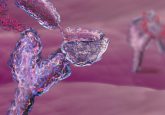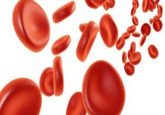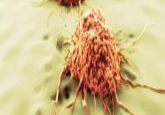Gut microbiome may underlie success of cancer immunotherapies
In the hope of determining why patient responses to immunotherapies can differ greatly, two studies published recently in Science have determined that the gut microbiome can play an important role in therapeutic outcomes.
One study, conducted by first author Marie Vetizou and her team (Institut de Cancérologie Gustave Roussy, France), investigated the efficacy of anti-CTLA4 agent ipilimumab against sarcomas in mice who were under specific pathogen-free and germ-free conditions. Mice with tumors in germ-free conditions revealed no response to ipilimumab.
Furthermore, antibiotic-treated mice also did not respond to CTLA-4 blockade with ipilimumab, demonstrating that antibiotics can compromise the anticancer effects of ipilimumab.
To investigate the causes of these responses, the team analyzed ribosomal RNA of feces following a single injection of ipilimumab. A distinct change in the microbiome was witnessed: in particular, Bacteroidales and Burkholderiales were reduced in numbers.
When these microbe numbers were restored in germ-free and antibiotic-treated mice environments, the effects of ipilimumab therapy were restored, unveiling a dependence of CTLA-4 blockade on Bacteroidales species.
Fecal samples of 25 individuals with metastatic melanoma were then taken to investigate the presence of Bacteroidales in the clinical setting. Patients were grouped based on the presence of different microbe species. The fecal samples were transplanted into germ-free mice, which were subsequently treated with ipilimumab 2 weeks later.
Tumors growing in mice that had been transplanted with human feces containing higher levels of B. fragilis reported the best response to treatment.
In a second study conducted by Ayelet Sivian and colleagues at the University of Chicago (IL, USA), a similar relationship was reported.
In this research, the team investigated the effects of the microbiome on anti PD-1/PD-L1 therapy for melanoma. They did this by studying both Jackson Laboratory and Taconic Farms mice, which are known to possess unique sets of microbiota.
Taconic Farms mice demonstrated tumor-specific T cell responses that encouraged aggressive tumor growth and an accumulation of CD8+ T cells.
This tumor growth was slowed when fecal specimens from Jackson Laboratory mice were transplanted into Taconic Farms mice. When combined with PD-L1 antibody therapy, tumor control was further improved.
Investigations into the Jackson Laboratory microbiota revealed 400 times the normal amount of Bifidobacterium, and this was associated with increased antitumor T cell responses.
Using genome-wide transcriptional profiling, these mice were reported to exhibit upregulation of genes critical for antitumor response.
The findings from both studies collectively reveal that the gut microbiome could play an important role in the physiological response to cancer immunotherapies, but further studies are warranted.
Sources: Vétizou M, Pitt JM, Daillère R et al. Anticancer immunotherapy by CTLA-4 blockade relies on the gut microbiota. Science. DOI: 10.1126/science.aad1329; Sivan A, Corrales L, Hubert N et al. Commensal Bifidobacterium promotes antitumor immunity and facilitates anti–PD-L1 efficacy. Science. DOI: 10.1126/science.aac4255; American Association for the Advancement of Science press release





